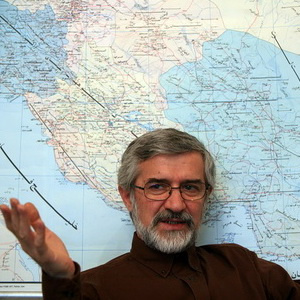Turkey Can Be More West-Independent

IRD: How can we describe Turkey’s diplomacy? Is it a pro-West diplomacy?
MMM: Before the rise of the Islamist AKP Party to power, Turkey defined its foreign policy in a different mode. It was a member of the Western block in the Cold War era. It joined NATO and established a powerful military. This policy also necessitated acknowledging and formally recognizing Israel as a state.
However, the ruling elites of Turkey during those years were not the real representatives of the Turkish nation, just as it was the case in many other regional states, such as Iran and Pakistan.
IRD: Is the pro-West diplomacy still in effect?
MMM: There have been developments throughout the recent years. Top AKP leaders such as Erdogan, Gul and Davutoglu claim that no significant transformations have taken place, and Ankara has merely decided to cast an eye to the East too, but the reality is that Turkey had strongly detached itself from the East. Ankara distanced itself from Islam and Islamism, and its ties with the Muslim World and the Arab World were at an ebb.
IRD: What is the significance of relations with the Muslim World for Turkey?
MMM: The Muslim World, particularly the oil-rich states, provide a lucrative market for Turkey’s booming economy. Up until a few years ago, Iran was the only market in the East that Turkey focused on, but it seems that Turkey now has targeted a greater number of countries.
Politically, Turkey vies to be an influential nation in the region. It has created opportunities for itself by serving as a middleman between Syria and Israel. Turkey has also pursued a high-profile presence in the Caucasus and in Central Asia. Turkey does not intend to weaken its links with the West, but its expanding ties with the East inevitably will influence its relations with Western countries, who want to see Turkey as a full Western-clad member of their club.
IRD: Turkey seems to be trying to create a balance between the Muslim World and the West in its foreign policy. Is this balance attainable?
MM: Expanding ties with the Muslim World brings pressure to bear on Turkey by the West, but it is not something Ankara cannot tolerate. Turkey needs Western technology and investment, but isn’t the West also in need of Turkey?
During recent years Turkey has tilted toward the Muslim World and carried out several moves which have raised the ire and protest of Israelis, so the question the West asks itself is, what if Turkey decides to fully align itself with the Muslim World over the Israel issue? I hope Turkish politicians are aware of the fact that the West needs them to maintain its interests in the Middle East, Central Asia, the Caucasus and the Persian Gulf. It can’t pressure Turkey beyond a certain level.
IRD: Isn’t there a chance that Turkey-West relations enter a stormy state, and that the West decides to punish Turkey due to its anti-Israeli actions?
MMM: Just imagine how a Turkey aligned with Iran, Hamas, and Hezbollah could jeopardize Israel’s situation. It is not only Israel, though. Washington is using Ankara’s logistic amenities for its war in Iraq. 70% of the logistic support for U.S. troops is provided via the Incirlik base in southeastern Turkey. Turkey may be the future host of a missile defense shield, or more radar bases. Losing Turkey as a reliable host will impose a heavy price on the West.
Ankara’s new anti-Israeli policy against disturbs the West, but the country’s strategic position prevents the West from taking any action against it. I believe Ankara is in a position to even function as a more independent global actor, and move even closer to the Muslim World. As a politically stable and economically advancing state, it will gain more popularity in the Muslim World, of course only if it does not restrict the maneuverability of other players in the region.

